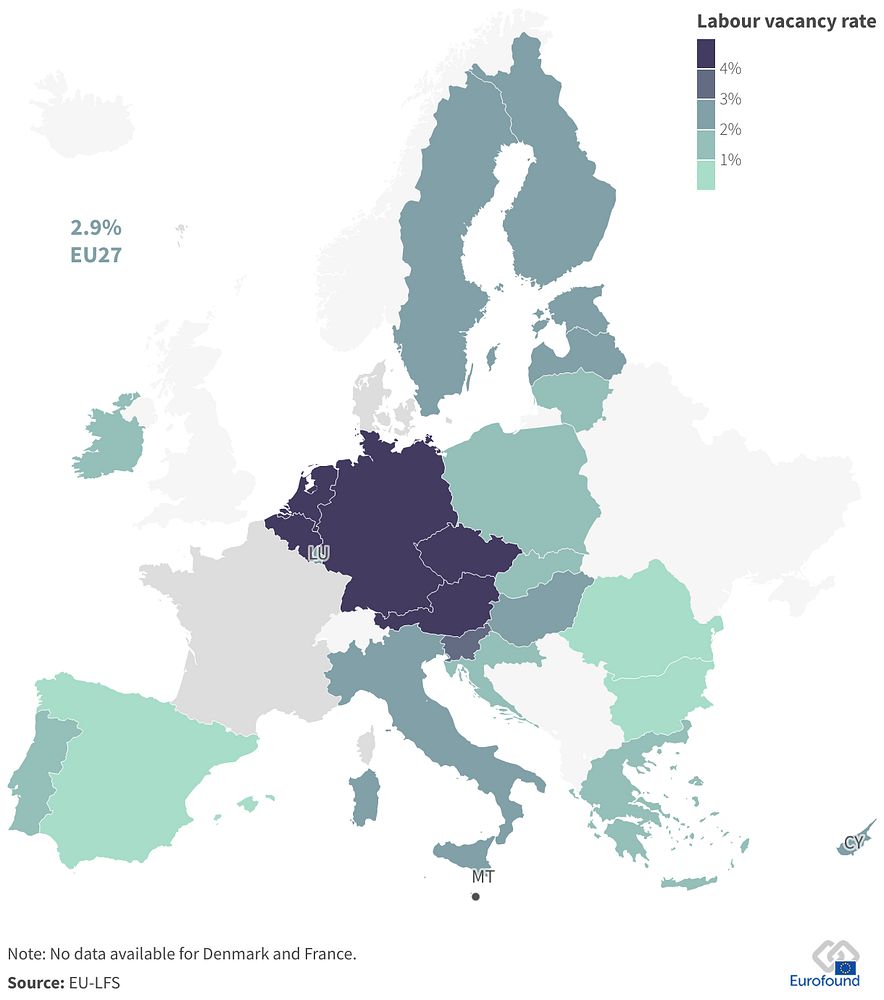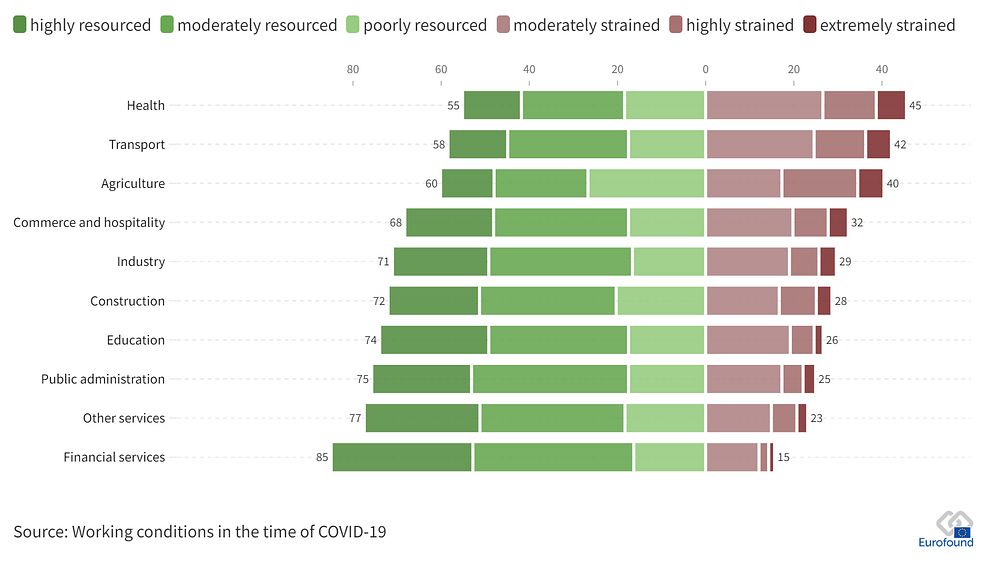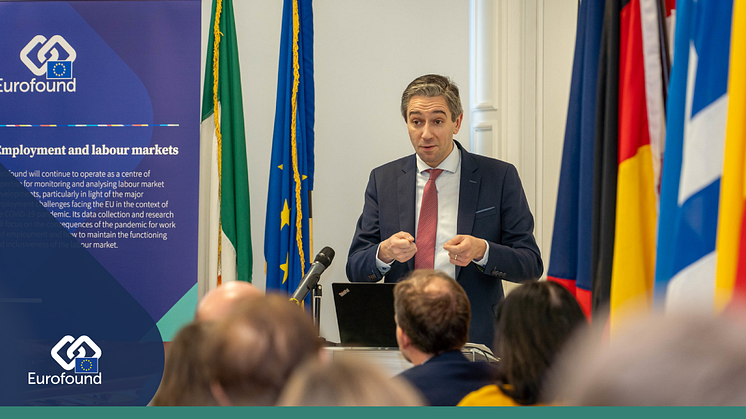
Blog post -
EU lack of labour won't be solved by skills alone: Improving job quality is key
By Tina Weber
The European Commission declared 2023 as the European Year of Skills, stating ‘Helping people get the right skills for quality jobs and helping companies, in particular small and medium enterprises, address skills shortages in the EU is what this year is all about.’
So 2023 is all about skills and shortages it would seem.
And, certainly, as EU economies begin to recover from the COVID-19 pandemic, labour shortages are top of the agenda. Achieving the green and digital targets and ensuring the delivery of essential services, such as health and long-term care as the population ages and the working-age population shrinks, is a serious concern for policymakers across the EU. Employers face daily challenges to meet production targets, deliver quality services, and innovate and grow their business due to lack of a (suitably trained) workforce. Moreover, there needs to be a focus on the impact on workers, often faced with work intensification if their employer is unable to fill vacancies in a timely fashion, which can potentially further aggravate shortages in affected organisations and occupations.
This year is about more than just skills. If the EU really wants to plug these employment gaps, we need to talk about the other reasons for Europe’s lack of labour, including low pay, poor working conditions and gender segregation in the workplace.
What is the scale of shortages – and where are they?
By the end of 2022, the average EU vacancy rate had reached a historic high of around 3%, according to new Eurofound research. Close to a third of EU employers say that these shortages are limiting their ability to produce and to deliver services. This fight for talent is most acute in Austria, Belgium, Czechia, Germany and the Netherlands, although in certain sectors and occupations, shortages are evident in most Member States (Figure 1).
Figure 1: Labour shortages in EU Member States, measured according to vacancy rates, Q3 2022

The pandemic aggravated the shortages that have for many years been a feature of both the health and the information and communication sectors. In 2022, 6% of European enterprises were struggling to find ICT specialist skills (up from 2.6% in 2014). Sectors that were hit hardest by pandemic-related restrictions – such as construction, hospitality and retail – are struggling to rebuild their workforces, as many former employees have taken up jobs with better working conditions. To make matters more complicated, new skills are increasingly needed to drive Europe’s green and digital transitions. This so-called skills mismatch is particularly notable in the construction sector, where the lack of specific skills is putting Member States’ ambitious carbon-neutrality targets at risk.
Eurofound research shows that many countries have taken steps to address these issues through stronger labour market policies and education and training measures focused on the skills and occupations demanded in the labour market.
Measures include the ramping up of digital skills training delivered in schools and offered to jobseekers – in the case of young unemployed people, often in the form of innovative intensive training courses also known as ‘digital bootcamps’, to educate the next generation of programmers and web designers.
In the construction sector, more and more emphasis is being placed on the specific skills needed in sustainable new construction and the retrofitting of homes and commercial premises.
In the health sector, specialist and ongoing training courses are being offered to help address skills gaps particularly evident in a number of medical and care specialisations, including geriatric and mental healthcare.
The solution is not just about skills, it’s about job quality
But this is not just about skills. Evidence shows that such measures are often not sufficient to solve the labour shortage issue, because skills mismatches are only one – albeit important – part of the phenomenon. In order to effectively address shortages, we must go beyond skills and fully understand the drivers behind the lack of labour supply.
An analysis of data from the European Working Conditions Telephone Survey (EWCTS) 2021 shows that labour shortages are particularly prevalent in sectors with poor job quality – as measured by an index that compares ‘job demands’ (physical and psychological hazards, work intensity and unsocial working hours, among others) with ‘job resources’ (such as task discretion, flexible working hours and training opportunities). It finds that the health sector is the most ‘strained’, followed by transport, agriculture, commerce and hospitality – all sectors experiencing significant labour shortages (largely on a seasonal basis in agriculture).
Figure 2: Job quality index, by sector, EU 27 (%)

Labour market slack – the gap between the volume of work desired by workers and the actual volume of work available – was at its lowest level in a decade in late 2022, again with variations between countries and demonstrating that there are still opportunities to integrate underutilised labour into the labour market.
Pay and working conditions play critical role
Most of the measures to address shortages in healthcare and long-term care seek to address pay and working conditions. This works to a certain extent; some such initiatives have helped retain skilled workers in central and Eastern European countries. But it is not always enough to attract workers to remote towns and villages, where poorer healthcare infrastructure and other quality of life factors, such as more limited education provision, can act as a deterrent. While specific payments to attract healthcare professionals to such regions have shown some impact (for example, in Bulgaria and Latvia), focusing on pay alone is often insufficient without other interventions to increase the attractiveness of working and living conditions – people also want greater autonomy over working hours, access to training, career prospects and to do work that they actually find meaningful.
Gender segregation also plays a part
Another feature of the sectors experiencing shortages is that they are highly gender segregated, as are occupations in those sectors. Health is heavily female dominated, while information and communication and construction are heavily male dominated, although the reverse may be the case for specific occupations (surgeons are mostly male, for instance). Addressing gender imbalances at work must be prioritised, as should efforts to encourage women who are outside the labour market to take up work. An analysis of labour market slack and the employment rates of women, as well as persons with disabilities and third-country migrants, show that even in tight labour markets untapped potential exists. However, incentivising such groups often requires measures beyond training or pay: it demands an understanding of the barriers to integration and how to tackle them. It typically requires measures around care provision and work–life balance as well as greater emphasis on the recognition of qualifications gained abroad and assistance in overcoming or accommodating health issues.
While an initiative such as the European Year of Skills is welcome, and improving skills can certainly go some way to help to address labour shortages, it is not a silver bullet. To address these challenges effectively, what is needed is a clear grasp of the drivers behind shortages in specific sectors and occupations and the policy context. With this clarity, targeted measures to address shortages can be developed, with the ongoing involvement of key stakeholders, including the social partners, who are best placed to understand current and future requirements in the labour market.
More information:
- Joint event: Where are the shortages, where are the workers? The drivers behind labour shortages in Europe and how to tackle them
- Publication: Measures to tackle labour shortages: Lessons for future policy





